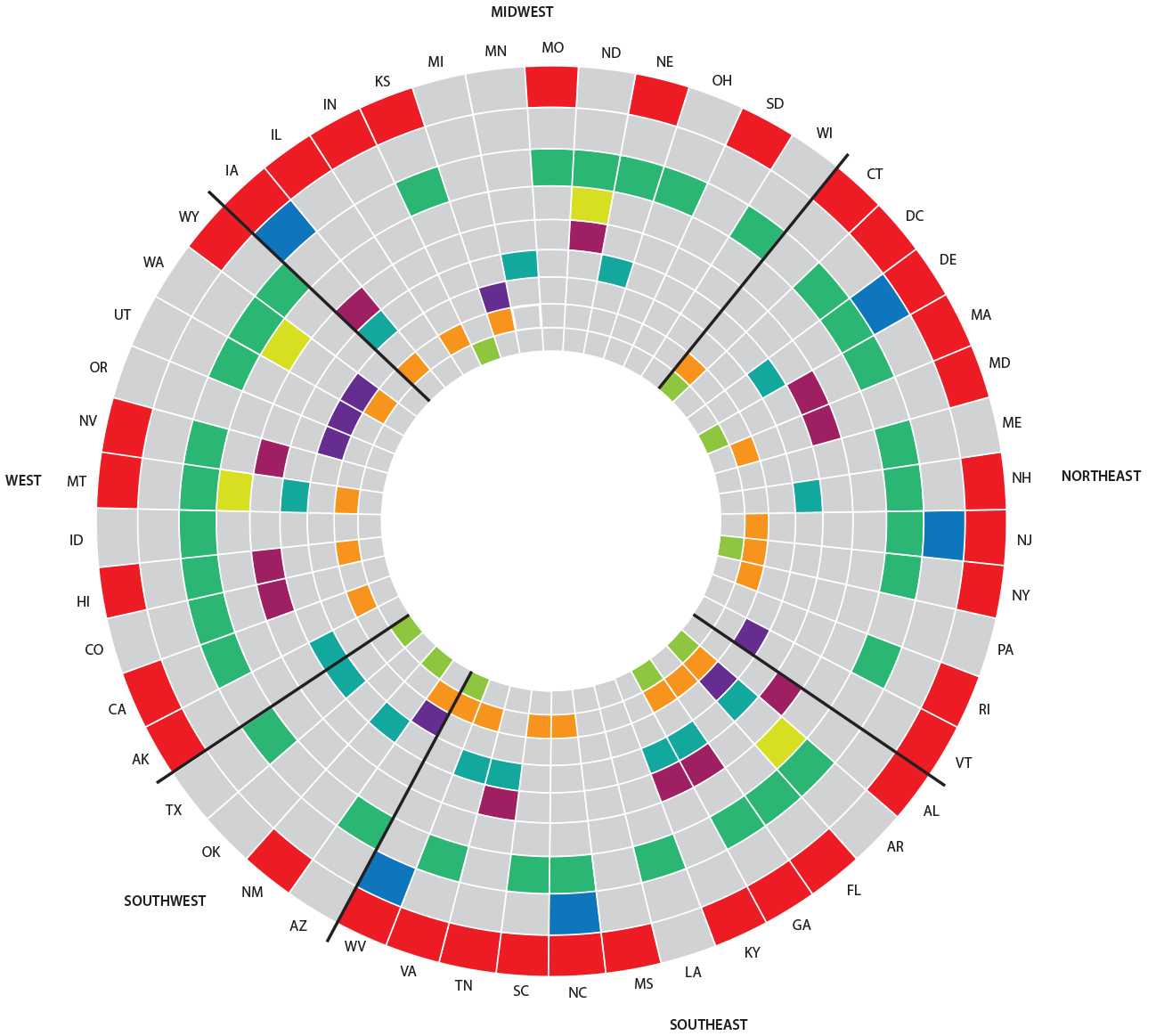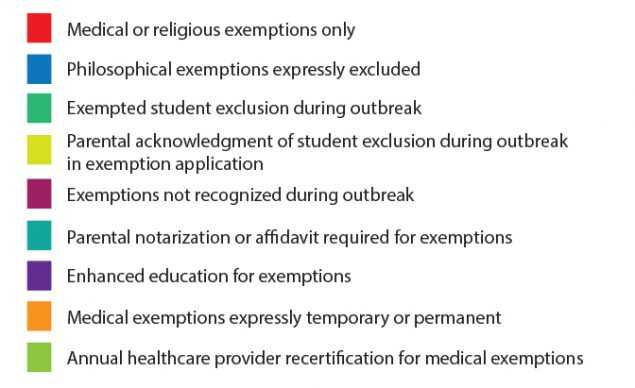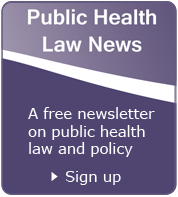State School and Childcare Vaccination Laws
State vaccination laws include vaccination requirements for children in public and private schools and daycare settings; college/university students; and healthcare workers and patients in certain facilities. State laws also determine whether providing vaccinations to patients is within the scope of practice of certain healthcare professionals. The Public Health Law Program provides selected resources for public health practitioners and their legal counsel on state vaccination laws.
The Latest in Vaccine Policies: Selected Issues in School Vaccinations, Healthcare Worker Vaccinations, and Pharmacist Vaccination Authority Laws [PDF – 156KB]
This article identifies and discusses changes and trends in select state vaccine policy issues developing across the US that can affect rates of vaccination. Barraza L, Hoss A, Schmit C. Journal of Law, Medicine & Ethics 2017;45:16–9.
School Vaccination Laws [PDF – 594KB]
The Public Health Law Program is collecting state statutes and regulations regarding school vaccinations. This document summarizes state vaccination laws collected in February and March 2015 and updated in February 2017. The recent updates reflect feedback from state health department staff who reached out to PHLP; therefore, this document may not reflect all changes that have occurred since March 2015.
This document will be updated; to update relevant immunization laws from your state, please the Public Health Law Program at PHLawProgram@cdc.gov.
Polar Graph on State School Vaccination Exemptions Law
State law not only establishes exemptions for school vaccination requirements, but also establishes requirements regarding the exemption application process and the implications of an exemption in the event of an outbreak. This graph highlights nine attributes in school vaccination exemption laws.


- Page last reviewed: April 28, 2017
- Page last updated: April 28, 2017
- Content source:




 ShareCompartir
ShareCompartir



